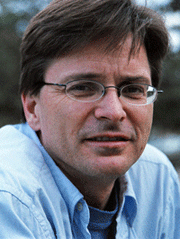First, talk of saving the planet is misguided. As many have pointed out in response to such rhetoric, the Earth will continue with or without humans. Charitably, we can interpret that phrase to mean "reducing the damage that humans do to the ecosphere and creating a livable future for humans."
The problem is that we don't have all the technology to do that, and if we insist that better gadgets can accomplish that we will fail. Overly optimistic assessments of renewable energy and energy-saving technologies promote the false hope that we have the means to maintain existing living arrangements. The problem is not just that the concentration of wealth leads to so much wasteful consumption and so many wasted resources, but that the infrastructure of our world was built by the dense energy of fossil fuels that renewables cannot replace. Without that dense energy, a smaller human population is going to live in dramatically different fashion.
The Green New Deal would be a step toward ecological sustainability if it included a call to take population reduction seriously along with a commitment to lowering consumption. Neither is part of the standard progressive pitch. For example, instead of advocating the end of car culture and a dramatic reduction in travel overall, progressives typically double down on electric cars, largely ignoring the destructive ecological costs of mining and production required for such vehicles and their batteries.
Reactionary and right-wing political movements defend current systems and peddle the illusion that no change is needed in how we live. Centrist and moderate political movements peddle the illusion that a kinder-and-gentler capitalism will keep modern society afloat. Progressive and left political movements peddle the illusion that a democratic socialist system will suddenly make an unsustainable level of consumption sustainable. Those on the left who reject the business-as-usual pseudo-solutions of the right and center are themselves embracing a version of business-pretty-much-as-usual that would slow the mad rush to collapse but does not set us on a new course.
ANGUISH
In this essay I have tried to be analytical, evaluating evidence and presenting my assessments to others, who can use the same intellectual tools to reach their own conclusions. But we humans are more than rational calculating machines, of course. Our capacity for reason can guide our actions, but we all are driven by emotion, passion, and the non-rational aspects of our psychology.
One of those very human emotions is fear. Franklin D. Roosevelt is remembered for taking on fear in his first inaugural address in 1933: "[L]et me assert my firm belief that the only thing we have to fear is fear itselfnameless, unreasoning, unjustified terror which paralyzes needed efforts to convert retreat into advance."
Whatever the value of that stirring rhetoric to a nation stuck in the Great Depression in 1933, many of the fears of today are not nameless, unreasoning, or unjustified. While the threats we face in the economic and political arenas are not new in human history, the ecological crises are unprecedented in scale and scope, and heightened fear is appropriate. We are not facing discrete environmental problems that have solutions but rather multiple cascading ecological crises that have no solutions, if we demand solutions that allow us to maintain existing living arrangements. Prediction is a fool's game, but even more foolish is to pretend that economic growth and the existing world population can continue indefinitely.
We should encourage people to be honest about these easy-to-name, reasonable, and justified fears that produce real anguish for many of us. It's increasingly common for people to speak of grief in the face of such immense human suffering and ecospheric destruction, but I think the term anguish better captures the range of emotionsdistress, dread, depressionand the degree of psychological pain and anxiety that comes with those feelings.
Next Page 1 | 2 | 3 | 4 | 5 | 6 | 7 | 8 | 9 | 10 | 11 | 12 | 13 | 14 | 15
(Note: You can view every article as one long page if you sign up as an Advocate Member, or higher).





